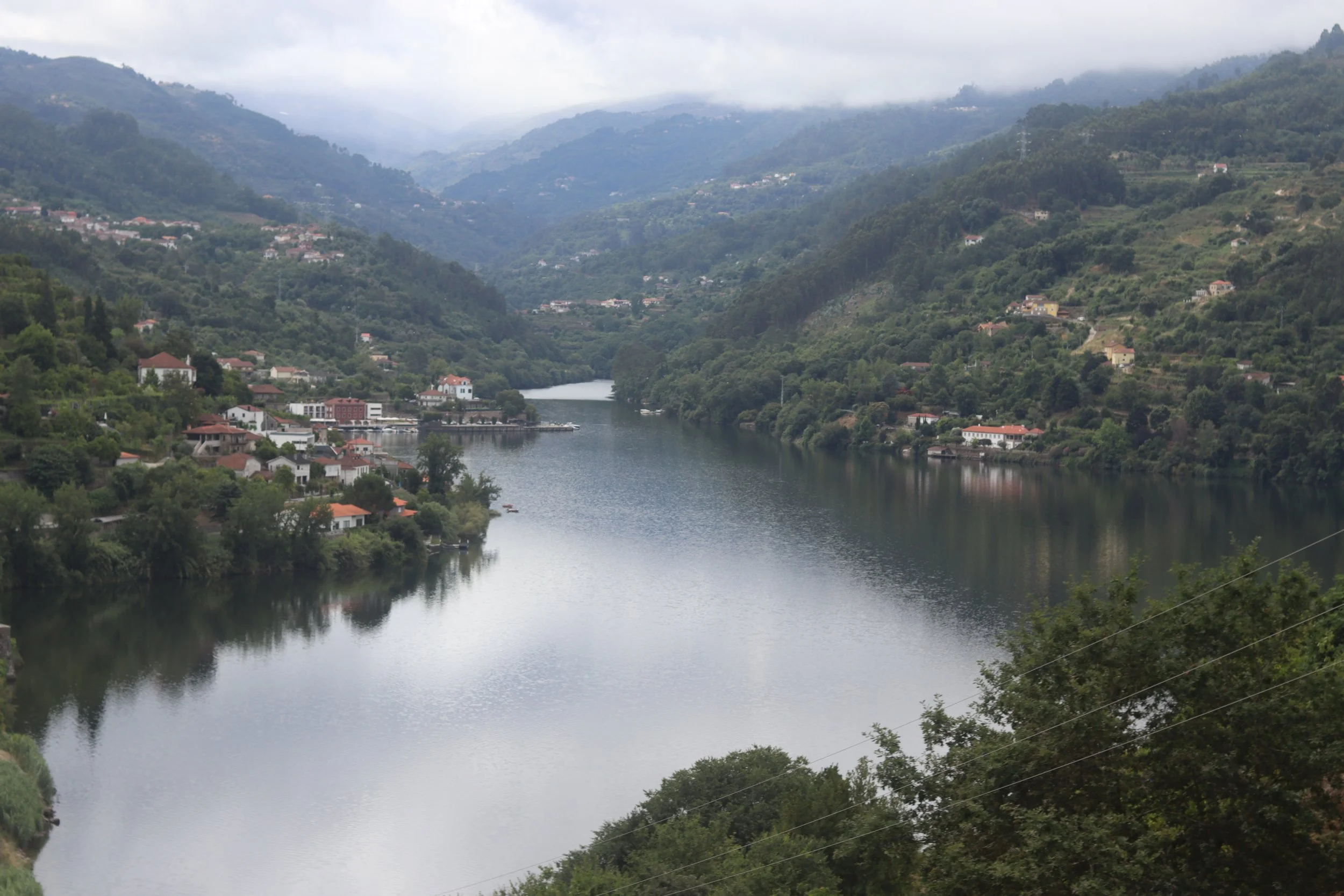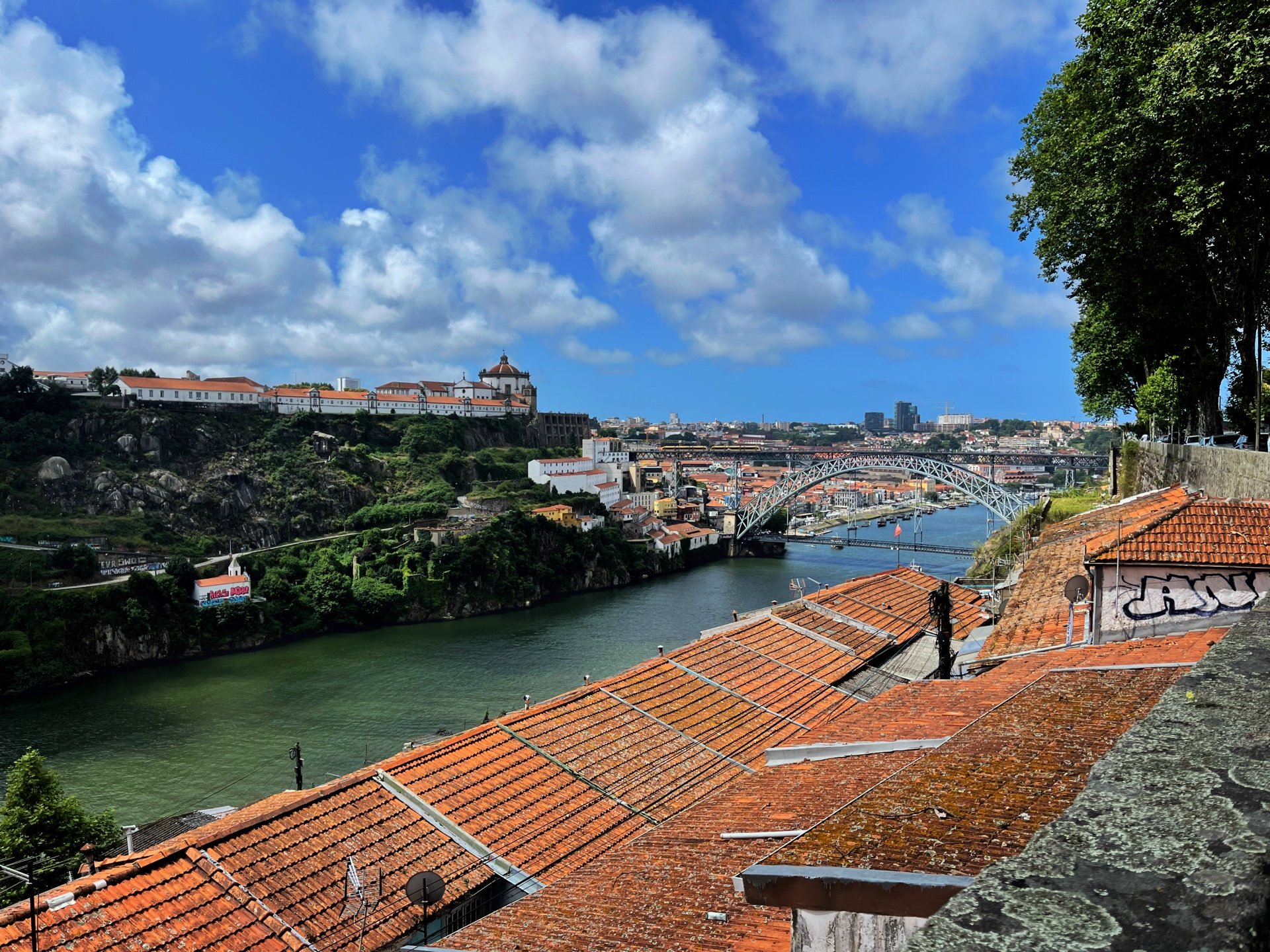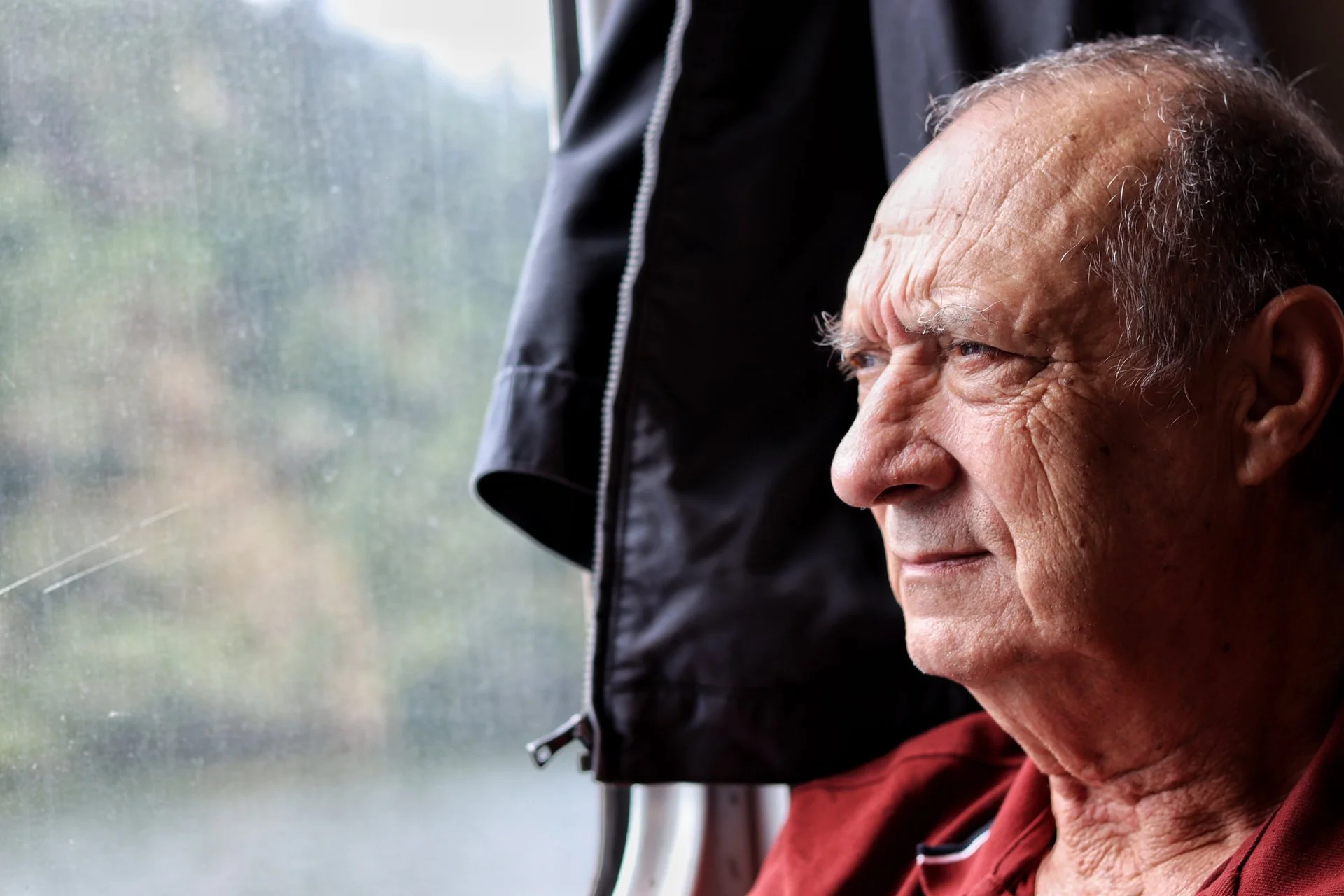Portugal, Week 1: A Traveler’s Intuition
Stories of wine, trains, and an unexpected feast.
If I had to sum up my first week in one word, it’s intuition.
A quick detour. I’ve been reading José Saramogo’s Journey to Portugal in preparation for my arriving. He’s perhaps Portugal’s most famous writer, having won the Nobel Prize for Literature in 1998.
The book, to me at least, is less of a travel guide and more a treatise on how to be a traveler. Eventually I will recount all of his insights, but one of the main ones is:
A traveler must have intuition.
Intuition’s a funny thing and I probably don’t need to explain it (like I could!). All I can do is describe mine. When it comes to making decisions, I have two competing forces. One is verbal, the other visual. The visual is my intuition, the verbal is my mind.
How it works: An image appears, spontaneously and involuntarily. Often times it is not very logical. When I follow it, interesting things happen. The verbal, on the other hand, is entirely logical. A case gets made in my mind, both for and against, with all possible outcomes accounted for. And when I follow the verbal, I get confused as all hell.
When I’m in a place like New York, it’s almost entirely verbal.
Anywho, all I can pray is for the visual to come in clearly. And on my third night, it did. I saw myself at the wine bar down the street.
I didn’t really want wine. I really wanted to get a good night’s sleep. But I had to trust it.
Upon arriving, I learned all the wines here are organic — grown and produced just hours from here in the lush Duoro Valley. They poured me a glass. The restaurant was half full. And suddenly, a man in a suit walks in. He looks outside on the patio, then puts his things on a table nearby. He looks my way, picks up his things and sits next to me.
His name is Alexandre. He lives in Lisbon, works in sports law, and is here on business.
We talk in our first shared language, sports. He has been to the US, he loves sport in all its forms, but his greatest love is that which is now upon us: The Olympics.
“When I was a young man, I traveled to Olympus in Greece,” he said. “I cannot explain it, but it was the most like myself I’ve ever felt. The sights, the smells, it all felt so real and familiar. I remember calling my Mom from a phone booth to explain it to her. Ever since then, I have been in love with the Olympics.”
“The Olympics, to me, is about values,” he continued. “They teach us about respect, excellence, friendship, teamwork.”
As he said this, a man came to take our order. Actually, he was the owner, a Frenchman. They spoke in French, I have no idea what was exchanged, but Alexandre ordered a glass of Cognac.
“That man only cares about profits,” Alexandre said to me. “He sells. He does not communicate with passion.”
Alexandre’s a man of passions. Sports is chief amongst them, the second being wine. “When you have passion, you can sell anything. It is contagious.”
“Nowadays though, we only sell products,” he said. “Why can’t we sell values?”
Soon, Alexandre bade me farewell. I had a belly full of wine and a half a page worth of recommendations, near and around Lisbon. So more to come there.
I strolled home giddily, lit by his passion.
Porto is a beautiful city. When Bourdain visited, he said there’s only about 12 beautiful cities left in this world, and Porto is one of them.
It’s a feast for the eyes. For one, yes, there are the tiles (Azulejos). Patterns, colors. Some are chipped. Some are perfect. Buildings are wedged side-by-side, each in vibrant blues, yellows, dark greens. It’s like Copenhagen but in the streets. You have textures everywhere. Stone buildings made probably five hundred years ago. Even the balustrades are intricately patterned and unique from the next.
Everything has character.
Porto is Portugal’s second biggest city. At this point, I don’t know much about it, other than it’s been infested with tourists (like me). The word has gotten out and everyone and their mothers have been here. You, reading this, have likely been here, or heard of someone who recently has.
But none of that matters to me. I am here and I am in love.
And that weekend, intuition took me on a joyride.
On my first day, I talked to some travelers who’d just driven through the Duoro Valley. This, as I said, is where much of the region’s wine is produced. So midweek I booked an AirBnB experience that’d tour the region.
Yet for whatever reason, the whole week I just had visions of me on a train.
Logically, it didn’t make too much sense. Four hours each way, and there’s a good chance I’d be by myself, in my own head, bored and filling out crossword puzzles from the NYT app.
The night before, though, I couldn’t shake it. The idea of the train excited and soothed me simultaneously. And so I emailed AirBnB to see if I could reschedule and I decided to follow the vision.
Verbal versus visual.
The next morning, it was raining. Already I felt validated. I Ubered to the train station and arrived 8 minutes before it’d depart.
Every river-facing seat was taken. I paced the cars, nothing was open. Again, intuition told me to sit in front of this man. He was a bit older, certainly Portuguese.
Throughout the ride we made small talk. He spoke a little English but not much. He let me know that he’d be getting off at Regua, which is about halfway until my final destination.
My plan was set. I fortunately stumbled across this other travel blog, The Man in Seat 61, which detailed the ride along the Duoro River, called “Portugal’s most scenic train ride.” It’d terminate in Pocinho, a town just near the Spanish-Portuguese border and the end of the line. There was one restaurant, “A Traberna da Julinha,” where you eat a traditional, fixed-menu Portuguese meal and then journey back.
And when my friend left in Regua, I’d take his river-facing seat.
Shortly before his stop, I went to the bathroom. And when I returned, another man was sitting next to him. I was seething with resentment. I was waiting two hours for this seat. And sure enough, when the man left, the other one slid over and took it. Oh well, I said. This seat will have to suffice.
The train rolled on and more and more people gradually shuffled off. Soon, it was just me and the man, plus his friends. There were ten of them total, and the car was entirely ours.
“Who are you from?” he said to me.
“New York,” I said. “And you?”
“Aveiro!” He said proudly. “The Venice of Portugal!”
He pulled out his phone and started showing me all the pictures of his town. It did look like Venice. I pointed out that my hometown was “Vero Beach” (“the Aveiro of America!”), yet it bore no resemblance to Venice at all.
I asked him about the food in Aveiro. He told me about the sardines, especially, and listed a few places to eat.
“Hamburgers,” he said to me. “In America, you eat hamburgers.”
This is true, I said. His name is Miguel. His wife, Maria, came over, as she speaks English quite well. They told me more about Aveiro and Portugal overall. And soon we got to Pocinho and bade each other farewell.
As I got off, I realized we were all going to the same spot. I mean, there was nowhere else to go. This was truly the end of the line. There was nothing in this town at all. We walked seven minutes up the road. I tried to linger slightly behind, to indicate that I was not following them but had my own plan and didn’t need to be invited.
The restaurant, from the outside, looked more like a house than anything. And on one of the front-facing windows read a sign, “SALA RESERVACIONES.” I do not speak Portuguese, but my hunch said that this meant, “Only reservations.”
The restaurant was one cozy room with about five different tables altogether. Each had ten or more people at them, all Portuguese. There was nothing available.
I pulled the tourist card and tried to play dumb. “Olá, solo uno, a table for one?” I asked the owner.
“No,” he said.
“Not even outside?” I pleaded. “I will sit anywhere, please.”
He shook his head. This was not up for discussion.
I was dejected. It was 1pm. Pretty hot outside. Hunger set in for me over an hour ago; the last hour of the train ride I could only think about Portuguese sausages. Moreso, the next train wouldn’t even leave for two more hours, and once you were on it, it’d be another hour until it even hit a place to eat. My only option would be to snack on Nestle Crunch ice cream bars for the next two hours.
My new friends were in front of me. And Maria, the wife of Miguel, said to the owner, “He will eat with us.”
“Are you sure?!” I asked.
Maria turned to me. “This is Portugal,” she said. “It’s what we do.”
I then watched them arrange, rearrange, and debate how we will fit an 11th placemat onto this already-set table, with different permutations that stuffed older women into corners and placed me prominently at the very head. I was horrified and dripping in sweat as I watched. “Are you sure this is okay?” I said a number of times.
One of the women spoke English. “When I went to the US, nobody helped me,” she said. “And I don’t want that to happen to anyone else.”
As I sat down, I was about on the verge of tears. It’d been a pretty tough year so far, and I didn’t experience many acts of kindness. This one, from complete strangers, was so generous and so unexpected, it touched me right in my soul.
And so began my first Portuguese feast.
First off, that wine tasted better than anything you could’ve imagined. Not only was it first-rate, grown just meters up the road, but after a series of events like that? I practically inhaled it.
The food, of course, was divine. We started with meats, cheeses, olives, and bread. Then came Alheira, a Portuguese sausage stuffed with chicken and bread, along with sliced tomatoes sprinkled with salt. A few bowls of rice and beans were dropped, and then came the meat. Plates stacked with perfectly tender beef filets. Steak, baby. Actually, I learned it was called “Mirandeza beef,” an especially succulent cut found right here in the region, rare and local. We topped it off with leite creme, a Portuguese egg custard. As we were paying and coffees were served, one of our tablemates, the most rambunctious of the bunch, emerged from behind the bar with a bottle of Cognac, which he started pouring into everyone’s coffees. I took one sip and felt it burn all over.
We paid and then shuffled off. We were the very last ones to make the train. My new friends exchanged WhatsApp numbers and offered an invitation to guide me in their towns, which I’d be sure to take them up on.
And to borrow one more phrase from Bourdain, “I was disgustingly happy.”
It was Sunday, and intuition struck once more.
On the Porto Expat Facebook group, a woman advertised “yoga in the park,” and I saw myself there.
This was held in Parque Cidade, one of the most pleasant and beautiful parks I’ve ever seen. It’s right off the beach and covered in trees. Not too crowded. A perfectly crisp 73 degrees or so.
Three of us showed up. We practiced. One man showed up halfway through, and just did his own yoga on the side until he joined us.
His name is Jairo. He’s from Spain originally yet lived in the US for over 20 years. Now, he lives in the mountains in a completely remote part of rural Portugal. “Imagine going back 100 years in time,” he said. “It’s an incredibly difficult place to live. The people grow everything they eat. They make no money. They live 45 minutes from the beach and have never seen the ocean in their entire lives.”
“So yeah, people do yoga and they go to India and they spend 3 years in ashrams or meditation or with gurus,” he continued. “But I say, if you want to learn about life, then you visit where I live.”
And so, the next weekend I was on my way.















